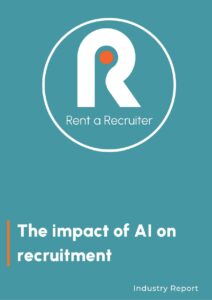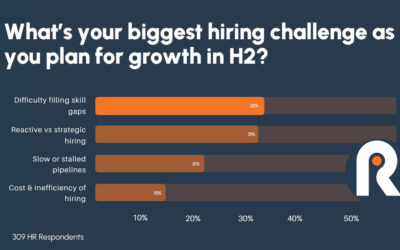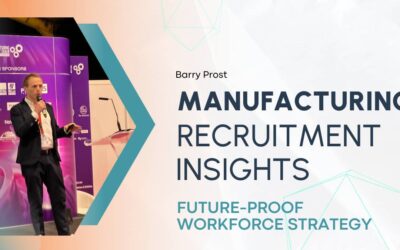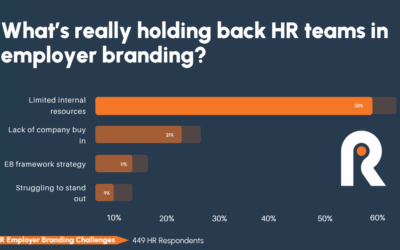Artificial Intelligence AI and its impact on the recruitment process
As per Gartner, “37% of organisations have implemented AI in some form. The percentage of enterprises employing AI grew 270% over the past four years.” The data was obtained from over 3,000 CIO responses from 89 countries reflecting $15 trillion in total revenue and public-sector budgets, as well as $284 billion in IT spending.
So, what is AI?
AI tools are a powerful asset to onboard into any business, when the capabilities, internal resources, and understanding of the output are used as an advantage. AI is not a new phenomenon; we are all familiar with AI and its promising solutions that will change the way we do business for the better. Digital sectors are at the infancy level of AI. In a global market that is vying for talent, artificial intelligence has enabled reasoning, learning, and decision-making using computational intelligent models. Recruitment is one aspect of the job which is heavily influenced by AI-based solutions now.
According to Irish Times, covid is the driving force behind companies adopting AI, with 40% of companies confirming the same. This is because businesses had to automate their processes to make a complete shift to remote work. Moreover, automation has enormously helped deal with backlogs of delivering services by speeding up their processes. Recent statistics by Expleo’s Business Transformation Index show that by 2023, over two-thirds of Irish Enterprises will be using AI and machine learning in general functions.
What is the impact of AI on recruitment?
-
Increased time and cost efficiency
When it comes to hiring practices, AI has a significant impact. One of the most complicated tasks for HR is to narrow down and filter resumes from a huge pool of candidates to discover the best one for the position. Now the scenario has changed, owing to AI, where applications can be reviewed using technology, enabling a fast recruitment process. The Chabot application enhances the candidate experience and helps to keep requirements and ideas up to date. Research by Bhardwaj and Singh found it better in strengthening employee retention.
-
Improved Candidate Experience
A review of applications of AI in recruitment by Nishad Nawaz found that AI can be beneficial not just to the company in terms of improved hiring quality, talent pool and unbiased selection but also makes the process equally effective for the candidates and improves their experience. For example, video job interviews enable candidates to look for jobs on a global scale. The AI-enabled recruiters use improved application tracking systems, which provide job candidates with more timely, accurate and transparent information during the job application process.
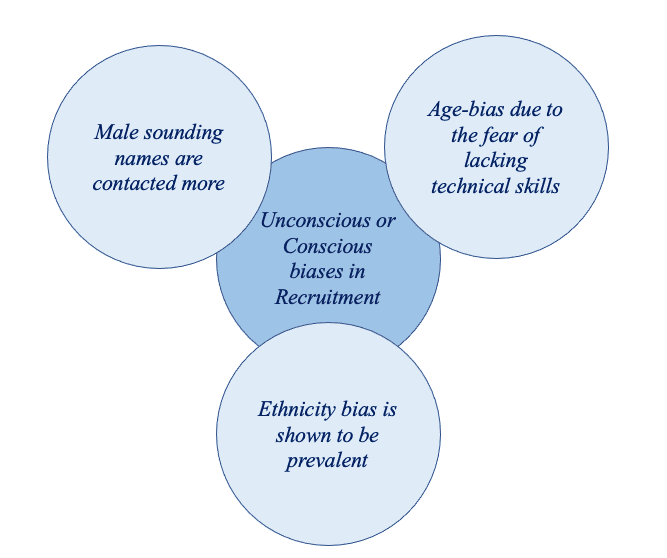
Figure 1: Biases in Recruitment
Source: “How to Use AI in Hiring to Eliminate bias” by Ronald Van Loon
-
Ensuring a Diversified Workforce
According to Gartner, “Through 2022, 75% of organizations with frontline decision-making teams reflecting a diverse and inclusive culture will exceed their financial targets”.
Businesses with the greatest levels of gender diversity are 25 percent more profitable than their counterparts in the lower quartiles. When highlighting both racial and cultural diversity, this rate rises to 36%. Diversity is essential to attracting top talent, with more than 76 percent of job seekers saying that a diverse workforce is a deciding factor in evaluating potential employers.
However, there are also studies that indicate that the hiring process which does not involve AI is often influenced by either conscious or unconscious bias. Some of the prevalent examples include gendered names, age bias and ethnicity bias as shown in Figure 1.
AI in Mitigating Bias
To elaborate Figure 2, AI can assist in implementing effective and unbiased recruitment process. It enables recruiters to focus on higher-value duties like forming connections with applicants, automate interviews which creates a baseline for assessing candidates. AI identifies problematic language and can enable companies to use gender-neutral language to ensure inclusivity. It excludes identifiers for example names or titles, to reduce biases. It consequently allows companies to hire for potential over experience by assessing a candidate’s problem-solving skills through automated assessments, an example of which is Pymetrics.
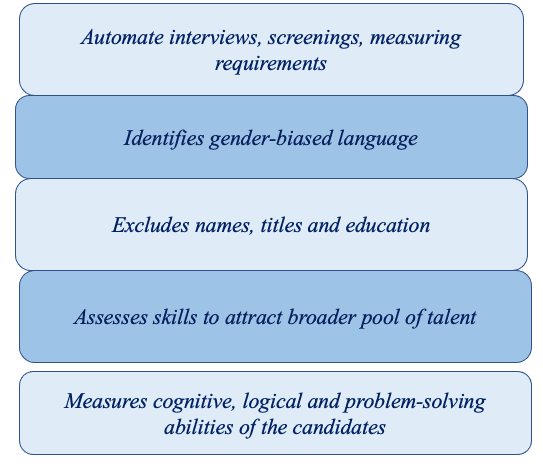
Future of AI in recruitment
“AI Success depends on collaboration between IT and HR”
– Gartner 2020
Even the most advanced technology will fail to produce meaningful results if it is not complemented by humans as a resource. AI needs to align with business priorities, a unified purpose and perspective are key for the successful implementation of AI. A Gartner report shared findings on how AI can be effectively used in a wide range of HR activities after gathering and interpreting data on labour market intelligence. This includes organisations worldwide using AI in
- Workforce Planning (52%)
- Learning and Development(51%)
- Skill Development (48%)
- performance management (41%)
Adopting automation tools/AI applications provide powerful data to help business owners and managers to make evidence-based decisions. First, they need to understand how to implement it, who will manage it, and the resources required to onboard, manage & maintain these systems on an ongoing basis. This calls for an investment in both humans and technology as resources.
The effectiveness and efficiency of AI in the early stages of recruitment are indisputable. Based on a case study within a well-known employment agency in the Netherlands, AI improves relationship building and stakeholder management since recruiters engage in more meaningful tasks that deal with selected candidates by enabling a positive candidate experience.
Figure 3 below is a graph which shows that the recruitment of human capital has evolved from a tactical HR function to a strategic goal in business. The narrative of recruitment is changing now. AI is not a curiosity anymore; it is a key competence that businesses want to possess to hire the best talent.
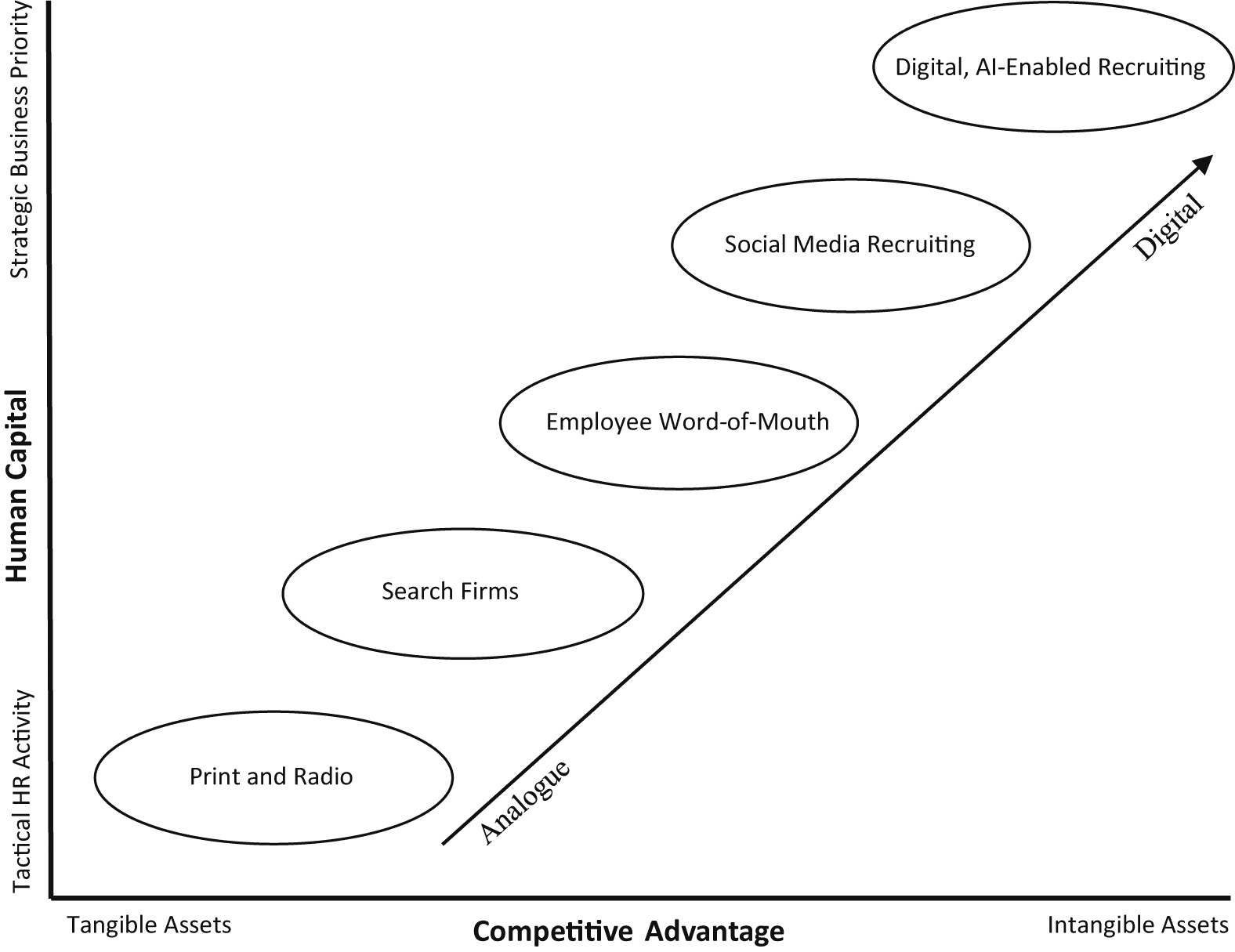
Social media recruitment
Social media is a undeniably a huge part our lives. The facts in figure 4 below show how social media platforms have enabled the expansion of recruiting young graduates. A lot of companies use Facebook or LinkedIn to recruit candidates. It allows companies to give candidates an opportunity to connect with them and get accustomed to the brand, its services and projects. It improves talent attraction since employees are better able to identify the organisation that aligns with their expectations and values. Networking has a huge impact in the corporate world today, therefore, social media recruitment allows both organisations and employees to broaden their networks.
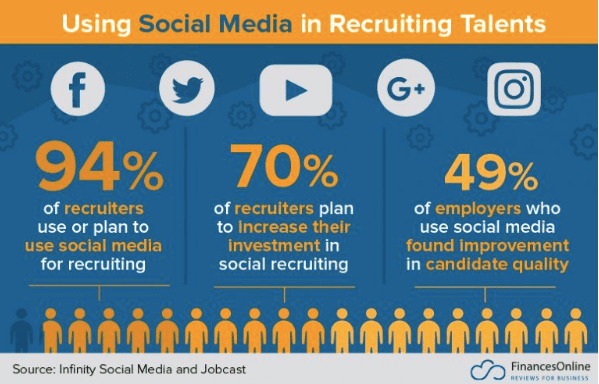
Figure 4: Data on Social Media Recruitment
Source: Finances Online
Measures for successful AI implementation in recruitment
According to Gartner, “by 2022 end, 85% of AI projects will deliver erroneous outcomes due to biases in data, algorithms, or the teams responsible for managing them”
(Gartner 2018).
- The fact above proves how we need to be careful while using AI in sectors that are heavily reliant on personal judgment/ interpersonal interactions for example hospitality sectors, architects and even marketing strategists. Regular risk assessment practices should be undertaken to understand the benefits of using an AI model while ensuring the privacy, security and transparency of the data gathered by the model. Models should be evaluated based on various criteria that can be potential grounds for risk, for example, ensuring if the model is ready to use in real-world or in an experimental setting.
- In order to design algorithms that are not biased, it is critical to incorporate feedback and opinions from many teams and individuals inside the firm, such as recruiters, data scientists, subject matter experts, and managers.
- Most importantly, AI should only be used to supplement HR teams and recruiting processes, not to replace human judgment or decision-making. After all, successful implementation of AI entails a shared vision and purpose behind what this technology truly means to HR and the organisation.
Final thoughts
Robert Rogers (partner in Mckinsey) states:
“Leaders will continue to make the right investments in talent tooling and capabilities to help deliver scale.”
This shows how AI is fundamental to success. However, an essential point to note is that it is crucial to focus on business values first, align AI with business priorities to showcase what the business is doing to deliver those promises. In today’s competitive world, AI is a global change that can harness business values and a strong workforce.
Download PDF >
